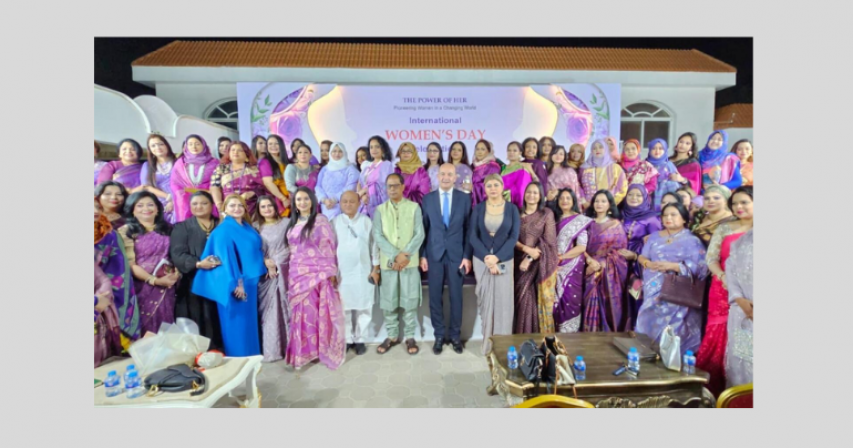More than 1,100 Bangladeshi women entrepreneurs and professionals make their mark in the UAE

Over 1,100 Bangladeshi women entrepreneurs and professionals are actively contributing to the UAE's economy, marking a significant presence in various sectors, including real estate, restaurants, garments, and trading. The growing number of Bangladeshi women starting businesses reflects the broader trend of women's empowerment in both Bangladesh and the UAE.
In the UAE, Non-Resident Bangladeshis (NRBs) own and manage a substantial portion of active businesses, with women entrepreneurs comprising a smaller but increasing segment. Many Bangladeshi homemakers are also leveraging online platforms like Facebook and Instagram to establish businesses, with approximately one million engaged in such endeavors, a significant proportion of whom are women.
This surge in entrepreneurial activity mirrors the progress of women's empowerment in Bangladesh, where women play a crucial role in the small and medium-sized enterprise (SME) sector. According to the International Labour Organisation (ILO), women are involved in over 40 percent of SMEs in Bangladesh, contributing significantly to the country's economy.
The rise of women's entrepreneurship in Bangladesh is evident in various sectors, including manufacturing, trading, and services. Women's participation in the labor force has increased substantially over the years, with around 12 percent of them becoming entrepreneurs. Additionally, the ready-made garments industry, a major contributor to Bangladesh's economy, employs over 90 percent women.
Abida Hossain, Chairperson of Bangladesh Consulate Ladies Group (BCLG) and General Secretary of the Women’s Diplomatic Group of Dubai, highlights the strides made in women's empowerment in Bangladesh. She emphasizes the importance of increasing women's economic participation and financial security, which have been supported by government initiatives such as microfinance programs and skill development training.
Despite these advancements, challenges remain, with only a small percentage of Bangladesh's businesses being headed by women. However, the number of women entrepreneurs has been steadily increasing, driven by growing awareness and government support.
Political empowerment is also crucial for women's representation and influence in decision-making processes. Bangladesh has taken steps to increase women's political participation, including reserved seats for women in local government institutions.
Among the success stories are Nahida Khan and Fatima Begum, exemplifying resilience and determination in entrepreneurship. Nahida Khan transitioned from a career in the airline industry to real estate, founding her own business and establishing charitable initiatives. Fatima Begum, after facing personal tragedy, started her entrepreneurial journey in Bangladesh and later expanded her business to Dubai, overcoming challenges to become a successful entrepreneur in the fruits and vegetable market.
These stories underscore the growing role of Bangladeshi women entrepreneurs in the UAE's economy and their resilience in overcoming obstacles to achieve success.
By: Sahiba Suri





Comments